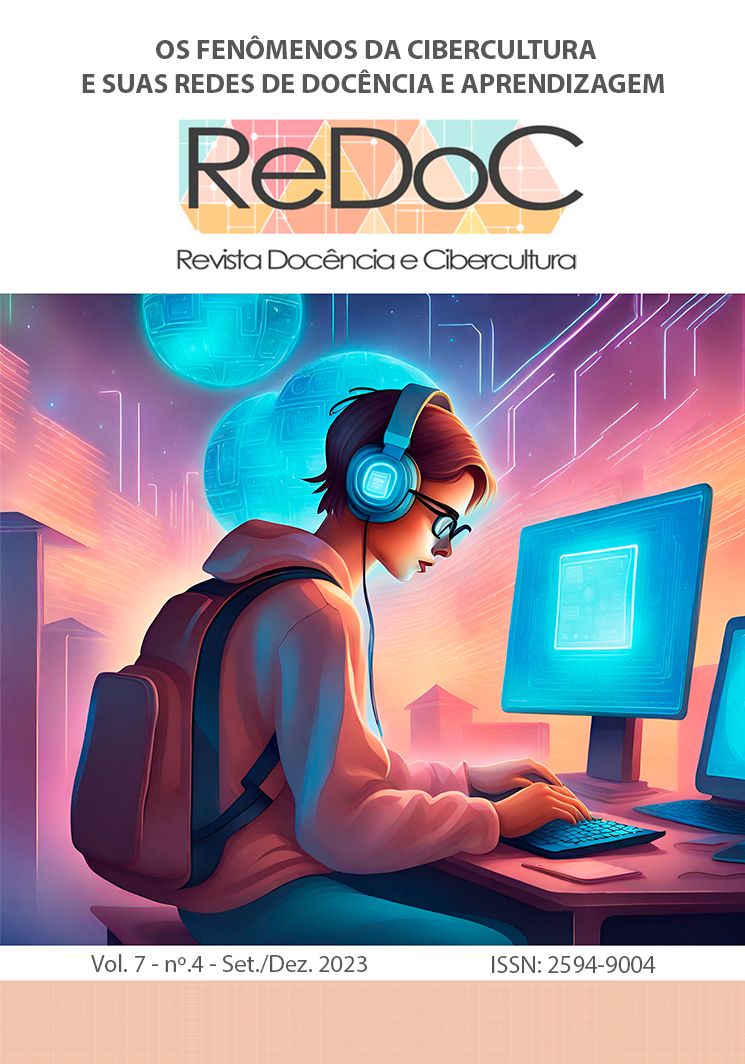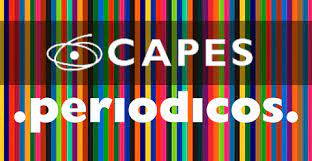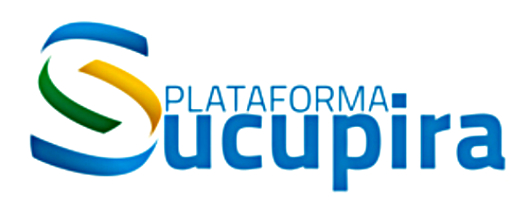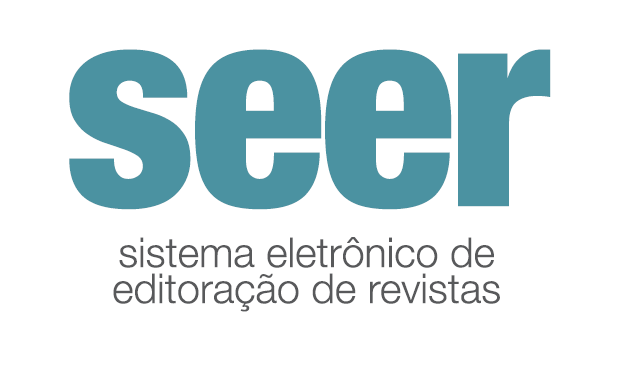INVENTANDO HISTÓRIAS: ENTRE CÂMERAS, CONVERSAS E INVENÇÕES
DOI:
https://doi.org/10.12957/redoc.2023.79949Resumo
A presente resenha é sobre o Programa de Entrevistas "Inventando Histórias", fruto do projeto de extensão Histórias para Educar, do EduStoryLab - Laboratório de Pesquisa em Histórias, Tecnologias e Educação na Cibercultura. Neste trabalho, mergulhamos nos fundamentos da contação de histórias digitais, apresentando uma resenha dos episódios do programa que compõem a temporada 1: Ficção, Memória e Experiência. Reservamos um espaço especial para o primeiro episódio em língua espanhola, intitulado “Viaje”. Enquanto a “Ficção” emerge como prática de imaginação e criação, a “Memória” é enaltecida como recurso essencial para narrativas contemporâneas. Já a “Experiência” nos convida a uma jornada que transita entre o individual e o coletivo. Ampliando esse panorama, Walter Kohan, no episódio “Viaje”, nos conduz a uma reflexão que transcende o deslocamento físico, abrindo caminhos para uma narrativa pedagógica que passa pela Pedagogia Menina da Pergunta. Em suma, esta resenha destaca um programa de entrevistas, que se inaugura como uma possibilidade de audiovisualização e popularização da ciência e pesquisas no campo educativo.
Downloads
Publicado
Como Citar
Edição
Seção
Licença
Copyright (c) 2023 Revista Docência e Cibercultura

Este trabalho está licenciado sob uma licença Creative Commons Attribution-NonCommercial-ShareAlike 4.0 International License.
Autores que publicam nesta revista concordam com os seguintes termos:- Autores mantém os direitos autorais e concedem à revista o direito de primeira publicação, com o trabalho simultaneamente licenciado sob a Creative Commons Attribution License que permitindo o compartilhamento do trabalho com reconhecimento da autoria do trabalho e publicação inicial nesta revista.
- Autores têm autorização para assumir contratos adicionais separadamente, para distribuição não-exclusiva da versão do trabalho publicada nesta revista (ex.: publicar em repositório institucional ou como capítulo de livro), com reconhecimento de autoria e publicação inicial nesta revista.
- Autores têm permissão e são estimulados a publicar e distribuir seu trabalho online (ex.: em repositórios institucionais ou na sua página pessoal) a qualquer ponto antes ou durante o processo editorial, já que isso pode gerar alterações produtivas, bem como aumentar o impacto e a citação do trabalho publicado (Veja O Efeito do Acesso Livre).



















